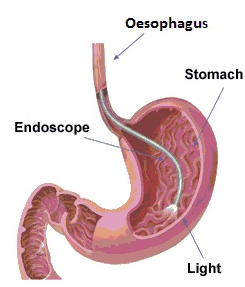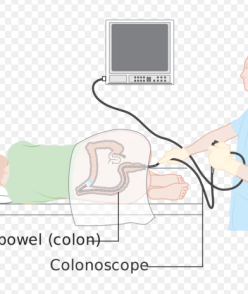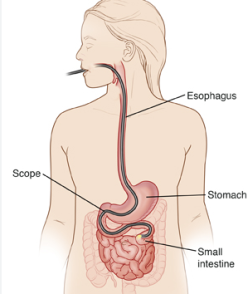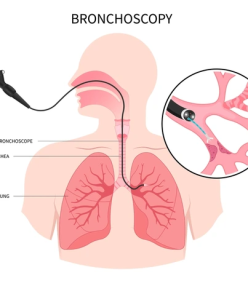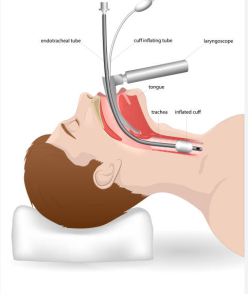ENDOSCOPY PROCEDURES
An endoscopy is a test to look inside your body. A long, thin tube with a small camera inside, called an endoscope, is passed into your body through a natural opening. Endoscopy has types like Gastroscopy, Colonoscopy , Enteroscopy ,Upper Bronchoscopy & laryngoscopy.
An endoscopy can detect diseases that affect your as following
- Disorders in the head and neck, which include swallowing disorders and laryngitis.
- Joints can suffer from arthritis, tears, and dislocations.
- Lung disease and infections are part of the respiratory system.
- Gastrointestinal diseases, polyps in the colon, and colon cancer are all part of the digestive system
ADVANTAGES OF ENDOSCOPIES :
- An endoscopy is used to diagnose conditions that affect the digestive system. Endoscopy can help identify ulcers, bleeding, celiac disease, blockages, inflammation, and tumors.
- Endoscopy is used to treat digestive tract problems. If certain disorders are found during the procedure, it’s often possible to treat them at the same time.
- An endoscopy is a safe procedure. It’s considered one of the safest medical procedures and carries a low level of risk. Rare complications include problems with sedation, bleeding, infection, and perforation, though these complications are generally associated with pre-existing conditions.
- An endoscopy is a quick procedure. An upper endoscopy takes about 20 minutes. You will be awake during the procedure, but you will take medication to relax you (a sedative) before the test. You will remain in the recovery area 30 to 40 minutes after the procedure.
- An endoscopy isn’t usually painful.
If you’re experiencing any of the following symptoms, your doctor might prescribe an endoscopy:
- Crohn’s disease and ulcerative colitis (UC) are examples of inflammatory bowel disorders (IBD).
- Stomach sore
- Persistent constipation
- Gallstones and pancreatitis
- Inexplicable bleeding in tumours of the stomach tract
- Infections
- Reflux disease caused by an oesophageal obstruction (GERD)
- Hiatal hernia
- Unusual bleeding from the vagina, blood in the urine, or other digestive
- Tract problems.
Before doing an endoscopy, your doctor will discuss your symptoms with you, examine you, and perhaps request some blood tests. Your doctor will be able to more precisely diagnose the potential source of your symptoms with the aid of these tests. They might be able to ascertain whether the issues can be resolved without endoscopy or surgery with the aid of these tests.

